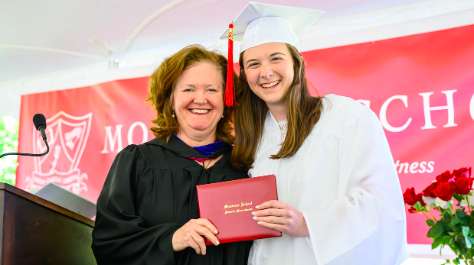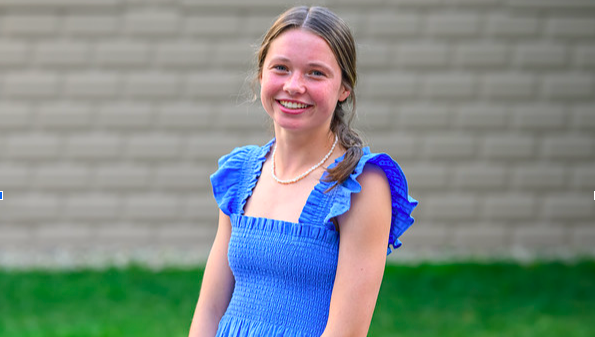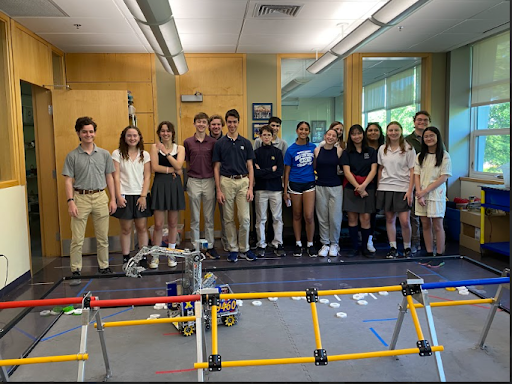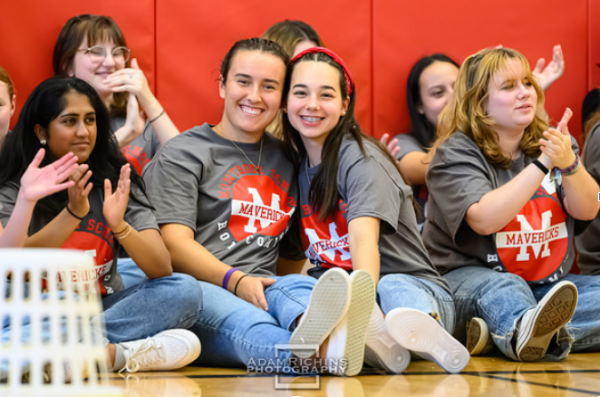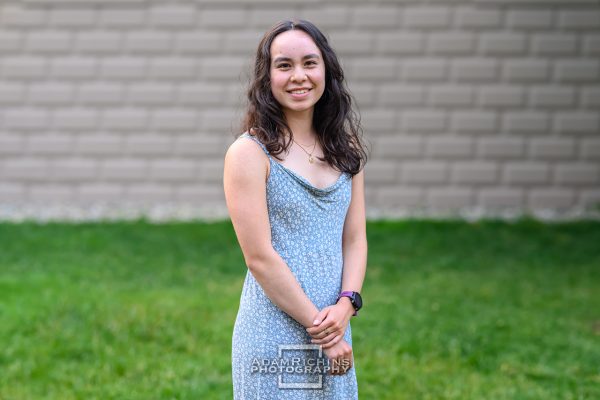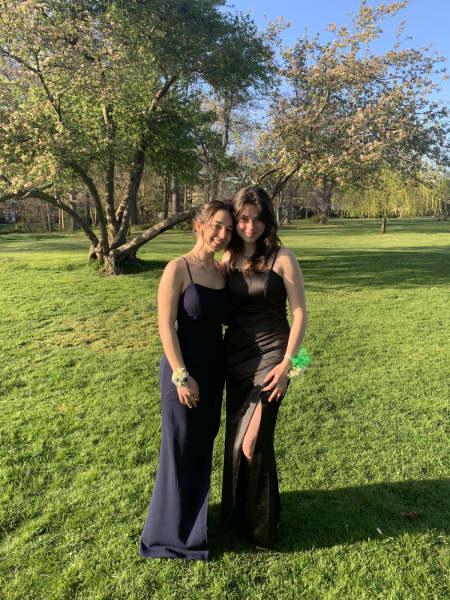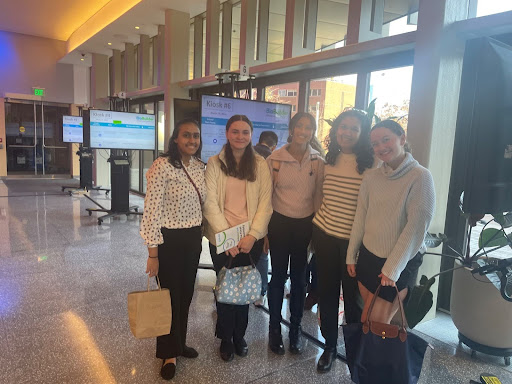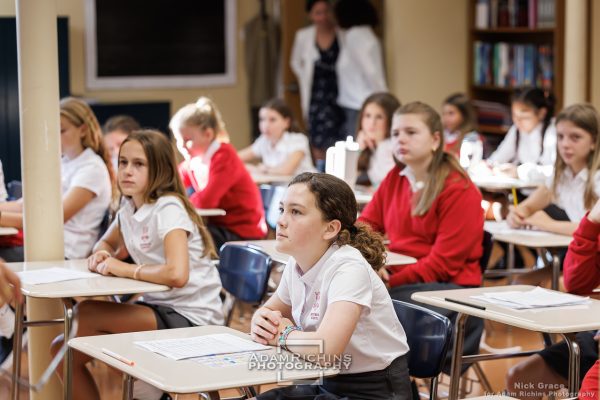An Inspiring Classics Day at BU
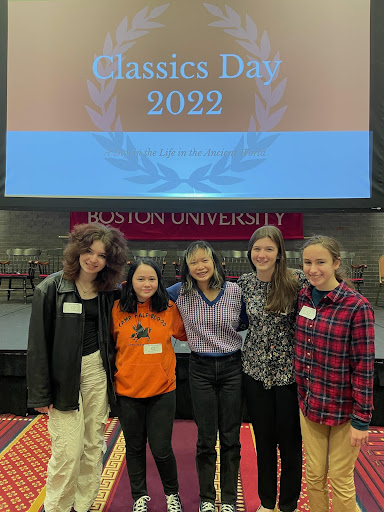
5 Montrose JCL Members at the Massachusetts JCL’s annual Classics Day
Whether your knowledge of the Classics comes from your required year of eighth grade Latin, an obsession with the Percy Jackson series, or an intense study of the language for four years, everyone should have a general understanding of the origins of the classical languages and why they are so influential to our society today. On December 1st, 2022, 5 members of the Junior Classical League (JCL), including myself, traveled to Boston University to partake in the Massachusetts JCL Chapter’s annual Classics Day. For just a few hours on a regular Thursday, we were transported to Ancient Greece and Rome to contemplate the lives of many marginalized groups of ancient society and discover why their contributions are so essential to the study of classical history.
James Uden is a professor of Classical Studies and the Chair of the Classics Department at Boston University. Professor Uden told the many curious and passionate students in the room that on this classics day, it “seemed like we were reaching back to the giants who lived before us.” With various topics being offered by Professors for lectures, Professor Uden encouraged us to “attempt to understand other human beings who were different from us.” Another meaningful insight he shared was the impact of his high-school Latin teacher on his passion for the Classics, and his desire to share her wisdom with his students. Just like Professor Uden’s high-school Latin teacher, Mrs. Demirjian, our amazing and talented Latin teacher, continues to “make an impact on the lives of her students each and every day.” Not only is Mrs. Demirjian a talented teacher, but she is also an expert at fostering the crazy Latin quirks that make our class so special. You know you have an amazing teacher when she lets you hang up a picture of Guy Fieri to help remember the four principal parts of a verb.
With topics ranging from Masks in Athenian Tragedy to Lookin’ fine in Ancient Times, JCL students had the opportunity to explore different topics that they were interested in and wanted to learn more about. Madison Li, another passionate Latin student and co-leader of the Junior Classical League chapter at Montrose, shared her insights: “My favorite part of classics day was the different courses we were allowed to take. There were twelve options and we could choose our top favorite..even if you didn’t get your top lecture, you could still sneak in.” Attending both Women Writers in Ancient Rome and Women in Greek Drama, I was able to learn and appreciate the contributions of a severely marginalized group of women to a predominantly male-controlled society. Professor Leah Kronenburg, Associate Professor of Classical Studies and director of graduate admissions, highlighted that the “study of women in ancient literature is the study of men’s views about women.” In this lecture, I learned that throughout the course of ancient Roman history, women contributed greatly not only to household duties but also to the art of eloquence and rhetoric in the forum. I was inspired by a particular ancient Roman woman, Hortensia, who possessed artful public speaking and rhetorical skills but also boldly “bore a man’s spirit under the form of a woman” in the Roman government. These women, although only valued by men as domestic matrons and wives, influenced not only the political scenes of the societies in which they lived but also future generations.
In my second lecture, Women in Greek Drama, we explored the themes of female subversiveness in Ancient Greek Texts while also discovering the importance of Greek Plays in the formation of class systems. With Professor Stephanie Nelson, a professor of classical studies in the department, we discussed the importance of certain Greek theatrical spaces like the Parthenon and the Theater of Dionysus. With female actors being prohibited from performing in the public acting space, we see how their value and importance in society were continually being diminished. Similar to the women of Ancient Rome, Ancient Greek society valued the contributions of women only in the household and not in public life. Professor Nelson, an avid supporter of open class discussion, then asked students to think of a modern reference relating to female subversiveness in literature. Making the best use of my Montrose English education, I discussed with other students the themes of female subversiveness and independence in Jane Austen’s Pride and Prejudice and Antigone. I really felt as if I was a college student. Raine Niebuhr ‘24 said: “I loved that the teachers used modern references to connect with the audience. In my second lecture, they used Percy Jackson and Hercules. They were interacting with the students really well. They were not just blank lecturing.” No matter what lecture you were in, students were able to engage with “ other Latin students who shared the same interests as you” (Raine Niebuhr ‘24) while also uncovering the importance of marginalized groups who “don’t get that much attention.” (Eliza Glaeser ‘24)
After we had attended our lectures, eaten our delicious lunch, and visited the JCL swag shop, we departed from Boston University and got a celebratory boba tea at a nearby restaurant. On this day, I was able to enjoy the company of fellow Latin students while also learning even more about a language that I have enjoyed learning for the past four years. To the uninitiated, Latin may seem either boring or unimportant. We, Latin scholars, are not just aiming to translate sentences and learn grammatical constructions. We are seeking to discover how these languages, cultures, traditions, and the ancients themselves had and continue to have a profound impact on not only the well-known but also marginalized communities of the time. Thank you Mrs. Demirjian for illuminating this path of knowledge and wisdom! You make the classics come
Kate Novack ’24, Co- Assistant Editor-in-Chief
24cnovack@montroseschool.org


